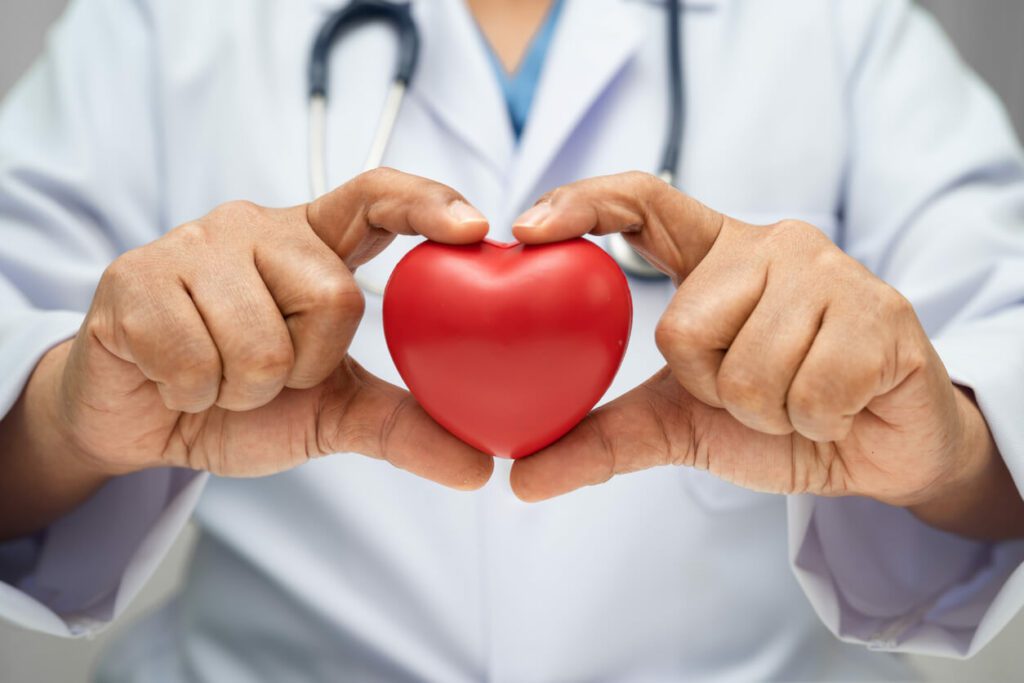
Do you sometimes wonder if that chest discomfort is worth a second thought? You are not alone if your heart health has been on your mind. Many adults, especially those with risk factors, feel anxious about missing early warning signs. Heart conditions can appear quietly, so knowing when to seek a specialist can make a big difference.
This article will explain five signs that suggest you may need to see a heart doctor, also called a cardiologist. You will also learn how to find the right specialist near you and what steps to take next.
1. Chest Pain or Discomfort
Chest pain is one of the most recognized signs of heart trouble, but it is not always dramatic or sharp. Some people describe pressure, heaviness, burning, or even squeezing across the chest. This pain may appear during activity or while at rest and can sometimes extend to your neck, jaw, arms, or back.
Never ignore chest pain. If it is sudden and severe, call 911 for emergency care.
Prompt chest pain treatment is important to rule out heart disease. Seek help if the pain lasts more than a few minutes or if the sensation comes and goes with activity or stress.
Additionally, watch out for additional symptoms, such as:
- Sweating
- Nausea
- Dizziness
- Shortness of breath
2. Shortness of Breath, Especially When Active
You should be able to use stairs or take a brisk walk without gasping for air. Unexplained shortness of breath can indicate a heart problem, more so if it worsens with activity or when lying down. The heart pumps blood to all tissues, and when it is weak or strained, fluid may build up in your lungs. If you struggle to breathe in situations where you previously had no problems, a heart test may be needed.
Watch out for when you need to prop yourself up with extra pillows to breathe easily at night. Waking up suddenly, gasping for air, and feeling out of breath after routine activities are also signs.
3. Swelling in Your Legs, Ankles, or Feet
Fluid retention, often called edema, is a symptom that people tend to overlook. If your socks leave deep marks or your shoes feel snug, it may be due to swelling. Heart problems can impair blood flow, causing fluid to build up in the lower body. Edema is commonly seen in people with heart failure or issues with the heart valves.
Watch out for persistent swelling that does not improve by elevating your feet. Swelling that gets worse as the day goes on or appearing with sudden weight gain or fatigue are also possible signs that you should see a heart doctor. If you notice swelling that does not go away, a heart doctor can help you figure out the cause.
4. Frequent Dizziness, Lightheadedness, or Fainting
Your brain needs a constant supply of oxygen-rich blood, and you may faint or feel dizzy when your heart struggles to do this. These symptoms can be caused by heart rhythm problems (arrhythmias), blood pressure issues, or structural heart disease.
Fainting, especially if unexplained, should always be evaluated by a medical professional. Pay attention if you feel dizzy when standing up too quickly, or if you have passed out without warning. Also, watch out for lightheadedness that comes along with chest discomfort, shortness of breath, or palpitations. These warning signs should prompt a conversation with a cardiologist.
5. Irregular Heartbeat or Heart Palpitations
Feeling your heart race, flutter, or skip beats can be unsettling. Occasional palpitations can be harmless, especially with stress or caffeine.
However, frequent or persistent irregular heartbeats can signal arrhythmias or other heart problems. Some arrhythmias increase the risk of stroke or sudden cardiac events, so prompt AFib treatment is vital. Watch out for palpitations that last more than a few seconds and pounding or fluttering sensations at rest. Also, pay attention to irregular heartbeat linked with chest pain, dizziness, or shortness of breath.
A heart doctor can provide testing and advice to find out when these symptoms are harmless and when they need treatment.
How to Find the Best Heart Doctor Near You
If you have noticed one or more of these warning signs, the next step is to find expert help. Choosing a cardiologist is an important decision for your long-term health.
Check that your doctor is board-certified in cardiology and has experience treating your specific condition. You can start your search by asking your primary care physician, family, or friends for referrals. Patient reviews can also give helpful insights into the doctor’s approach and bedside manner. Pick a heart doctor with an office that is easy to reach, and find a practice equipped for advanced diagnostics. Comprehensive heart care often needs access to equipment like echocardiograms, MRIs, and other tests and labs. Lastly, the key to excellent patient outcomes lies in clear communication between the doctor and you.
The Best Heart Doctor in Sarasota & Bradenton, FL
Finding the right heart doctor is crucial for maintaining optimal health and managing any existing conditions. Consider factors such as experience, credentials, and communication. This way, you can ensure that you choose a doctor who is well-equipped to handle your heart health needs.
Take charge of your health by choosing a skilled and trustworthy heart doctor near you. You can rely on the best cardiologists at Intercoastal Medical Group for compassionate care. Call our office nearest to you or use our online appointment request form to schedule a consultation.
We look forward to serving you!
Sources:
https://my.clevelandclinic.org/health/diseases/24129-heart-disease
https://my.clevelandclinic.org/health/diseases/21493-cardiovascular-disease
https://my.clevelandclinic.org/health/articles/21983-cardiologist

